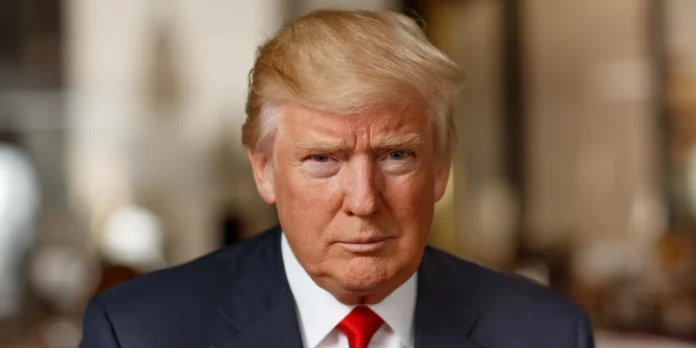The Trump administration has moved to the Supreme Court in a bid to stop a midnight deadline that requires the government to restart $2 billion in foreign aid payments. The move has sparked a legal battle involving the US Agency for International Development (USAID) and the State Department.
In an urgent filing on Wednesday, the Trump administration asked the Supreme Court to intervene and halt a court order that demands the resumption of foreign aid payments. The appeal was filed directly with the nation’s highest court, bypassing the appeals court that was considering the case.
At the centre of the dispute is a legal challenge brought by a group of nonprofits and contractors who sued the Trump administration after it froze nearly $2 billion in foreign aid funds. The funds were initially allocated under agreements made prior to President Trump’s time in office, but the new administration had halted the payments when it took office.
Earlier this month, US District Judge Amir Ali issued a temporary restraining order. This order instructed the State Department and USAID to restore funding for contracts that had been frozen by the Trump administration. These contracts were in place before President Trump assumed office. However, the judge’s order came with a strict deadline: the payments needed to resume by midnight on Wednesday.
The nonprofits and contractors who challenged the funding freeze had complained that the government was not moving fast enough to meet its obligations. They argued that many organizations, particularly those involved in international aid and development work, were facing significant disruptions due to the delay. They had urged the court to enforce the immediate release of the funds, prompting Judge Ali’s ruling.
In response to the ruling, the Trump administration argued that the court’s decision was unreasonable. The government’s legal team told the Supreme Court that the court-ordered payment schedule was unrealistic and could cause “irreparable harm.” The administration further argued that such a decision undermined the president’s constitutional duty to manage foreign aid spending in a way that protects the integrity of federal finances.
The US government’s legal filing to the Supreme Court stated that the payment plan set by the district court was at odds with President Trump’s responsibility to make careful and appropriate judgments regarding foreign aid. The Trump administration also expressed concerns about the “arbitrary timeline” set by the court and claimed it would take “multiple weeks” to properly process and pay out nearly $2 billion in owed funds.
“The government cannot pay arbitrarily determined demands on an arbitrary timeline,” the filing stated. “The integrity of federal funds must be preserved, and the court’s mandate could create a situation that jeopardizes that responsibility.”
The legal challenge dates back to late January when the Trump administration imposed a freeze on foreign aid payments. This move came as part of a broader effort to re-evaluate US foreign assistance and ensure that the funds were being used in line with the president’s priorities. However, the decision to freeze the payments was met with significant opposition, particularly from the organizations that rely on this funding for humanitarian and development work around the world.
As a result, several nonprofit groups and contractors filed lawsuits, arguing that the administration’s freeze on foreign aid payments violated existing agreements and contracts. These groups included organizations focused on health, education, and international development, many of which rely heavily on US foreign aid to fund their projects in regions around the globe.
One of the major points of contention in the case is the timing of the payments. The Trump administration has argued that it needs more time to properly assess and process the payments, especially considering the scale of the funds involved. The nearly $2 billion in question is meant to support a wide range of development projects, including health programs, disaster relief, and educational initiatives.
However, the plaintiffs in the case argue that the delay is causing significant harm. Some have warned that ongoing projects may have to be suspended or scaled back, leaving vulnerable communities without essential support. For example, many health-related programs, particularly those focused on tackling infectious diseases, depend on these funds to continue operations. Delays in payment could have a serious impact on these vital programs.
The case has now been moved to the highest court in the land, and the outcome will have significant implications for both the future of US foreign aid and the relationship between the executive branch and the courts. If the Supreme Court rules in favour of the Trump administration, it could lead to further delays in foreign aid payments. On the other hand, if the court sides with the nonprofits and contractors, it may force the government to release the funds more quickly.
The dispute over foreign aid funding comes at a time when international relations and diplomacy are key areas of focus for the Trump administration. President Trump has consistently advocated for a more “America-first” approach to foreign policy, with a particular emphasis on reducing the US’s financial commitments to international organisations and foreign aid programs.

